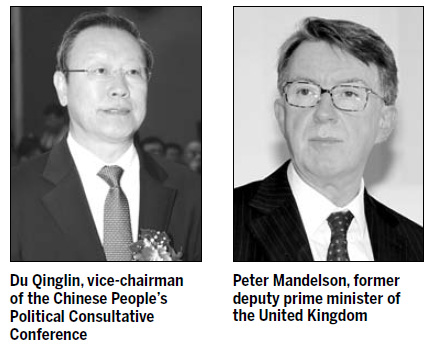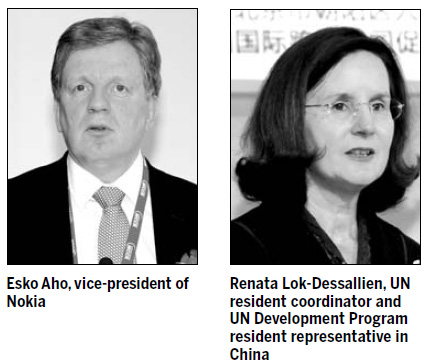Economy
Enriching China through shared rewards
By Zhang Zhao and Xu Xiao (China Daily)
Updated: 2010-11-12 08:09
 |
Large Medium Small |
|
 |
The Chinese government is placing an increasing amount of importance on corporate responsibility in development, a high-ranking UN official said in Beijing.
Lok-Dessallien's remark came at last week's International CEO Roundtable of Chinese and Foreign Multinational Corporations.
She explained that there are two reasons for the government's view. In part, it is because of the need to increase domestic demand, a key national strategy.
The other reason is the recognition that the inequalities associated with China's rapid development over the last decades are neither healthy nor sustainable.
|
 |
"So, as the government looks for both national and international private sector partners over the next five years, we should all expect to see much greater focus on the benefits that business can bring to the greatest number of Chines, rather than to the economy as an aggregate," she said.
UN Secretary General Ban Ki-moon sent a message to the roundtable, saying the focus on investment, corporate social responsibility and sustainable development is timely and important.
The draft of the 12th Five Year Plan clearly points to the importance of sustainable development and a green economy, said Lok-Dessallien.
"This will create new business opportunities," she added, giving two examples.
First, the rapid urbanization. Over the next 20 years, 350 million people - more than the entire population of the United States - are expected to move to Chinese cities, many of which are not yet built. China has an opportunity to leapfrog decades of traditional development and build new, low carbon cities from scratch.
Second, China is already positioning itself as a center of renewable energy work. Chinese companies have already turned it into a $17 billion industry, employing nearly a million people.
"Yes, the renewable energy train has left the station - and it is clearly going to be a high-speed train. Great opportunities await those who partner with China in this sector," she said.
Some ministerial level speakers and heads of multinational corporations spoke at the conference, including Du Qinglin, vice-chairman of the Chinese People's Political Consultative Conference; Peter Mandelson, former deputy prime minister of the United Kingdom; and Esko Aho, vice-president of Nokia.



